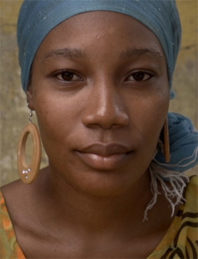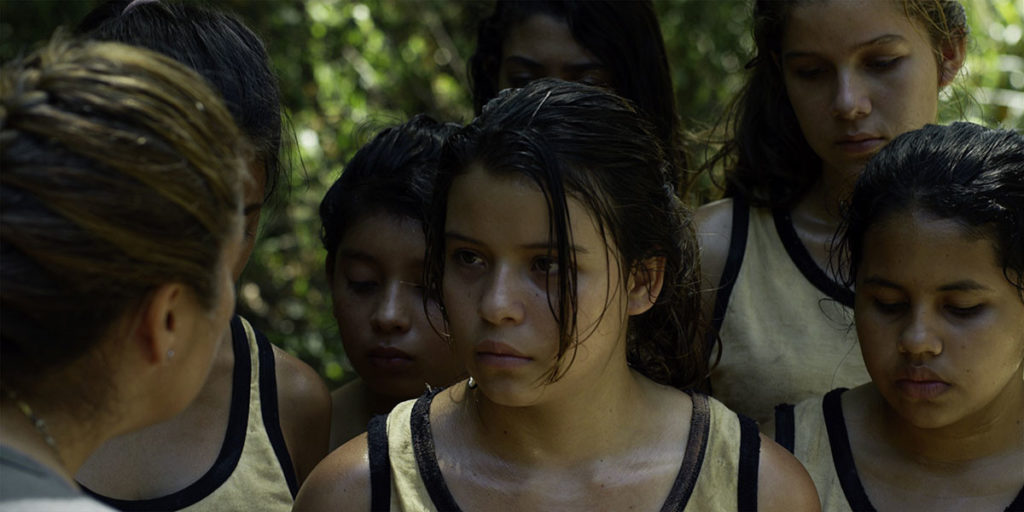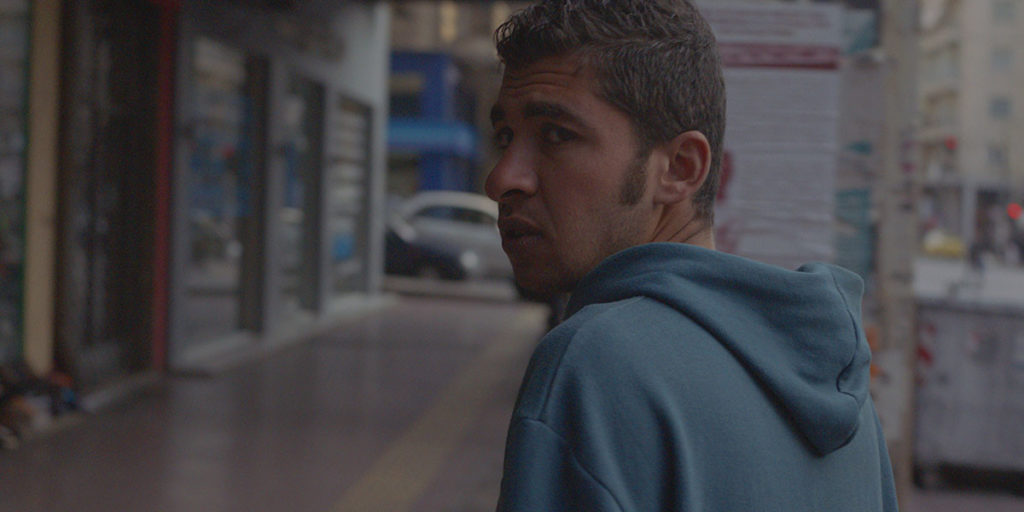
The Crying Conch
Dir. Vincent Toi
“If we can kill beast, we can kill men. If we can kill men, we can kill masters” utters a defiant Mackandal (Ebby Angel Louis) as he recounts the slave rebellions he led in Haiti. Taking a key moment in the country’s history, and blending it with the modern tale of a man (Zidor Montal) new to the land, Toi presents a truly compelling film. Slowly building the tension that simmers underneath, the film effectively displays how the hardships endured in Haiti today are not that far off from the injustices of the past. A moving and meditative piece of cinema, Crying Conch is a must-see.
Nuuca
Dir. Michelle Latimer
In her latest work, director Michelle Latimer takes the audience to the beautiful land of the Fort Berthold Indian Reservation in North Dakota. What starts out as an ethereal work, soon reveals its dark underbelly as Latimer explores how the industrialization of the region and extraction of resources has caused havoc on the indigenous community. Through the accounts of three separate women, the film shows how the mining of oil has directly led to an increase in violence towards indigenous women. The amount of abductions, rapes and murders have skyrocketed in a short span of time. A harrowing and important tale of exploitation of both resources and people, the most chilling aspect of Latimer’s film is the way the larger community turns a blind eye to the violence.
Damiana
Dir. Andrés Ramírez Pulido
A rehabilitation retreat for troubled teenage girls in the Columbian jungle becomes the setting for Andrés Ramírez Pulido’s emotional exploration of loneliness and longing. The audience is not given too much information on Damiana’s past, though some details drip through over the course of the film, but it is clear her actions have caused a divide between her and her father. Using the stern camp leaders, and strenuous labour designed to strengthen the girls’ bodies and minds, as a jumping off point, Pulido crafts a riveting portrait of a young woman trying to come to terms with the murky path she is currently on. While skillfully directed, a large portion of the films’ success is due to the heartbreakingly beautiful performance by Magaly Lopez in the titular role.
We Love Moses
Dir. Dionne Edwards
In this charming and complex tale of sexual awaking, a young girl discovers she may not know as much about sex and relationships as she thought she did. At age twelve, Ella has a massive crush on her brother’s best friend Moses, a member of the most popular clique in school. However, when Ella’s curiosity about sex leads to the discovery of a big secret, she quickly learns that the intricacies of sex and love are not always taught in books. Effectively touching on the awkwardness of youth and the fluidity of sexuality, We Love Moses is an honest, engaging and richly-crafted coming-of-age tale.
We Forgot to Break Up
Dir. Chandler Levack
After a three-year absence, Evan unexpectedly pays a visit to his former bandmates. Now famous, the presence of Evan, who they knew as Evie, puts the band on edge as it forces them to confront unresolved issues. Amusing and bittersweet at the same time, We Forgot to Break Up is a beautiful tale of friendship in the face of change. Levack’s film feels authentic and never goes for the easy out. Diving into the complexities of identity within the band’s dynamic, Levack constructs a layered look at the steps needed to build the bridge of healing.
A Drowning Man
Dir. Mahdi Fleife
Opening with a shot of a young Palestinian man (Atef Alshafei) adrift in the ocean, director Mahdi Fleife establishes a sense of hopelessness and isolation that will permeate his film. A refugee in Greece for 8 months, and with no job prospects lined up, things are have become dire for the young man. Struggling to survive, the man is forced to make some tough decisions, including one that will test his personal beliefs. Fleife’s film raise several questions regarding the plight of refugees in Greece, but does not offer any answers. He merely wants to open the audience’s eyes to those who are increasingly being ignored by society at large. While not always successful, there is plenty of food for thought to make the film worth viewing.
Screens:
Sunday, September 10, 3:45 PM, Scotiabank 14
Saturday, September 16, 3:00 PM, Scotiabank 16



